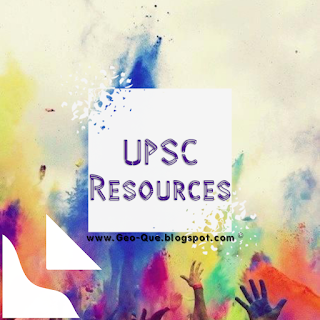Mathematics & its use in our Life including Competitive Exams
It is important to understand that, mathematics is not just a subject confined to classrooms or textbooks although it is the cornerstone of logical thinking and the foundation upon which many aspects of our daily lives are built.
In reality, from calculating expenses during shopping to understanding the complexities of technology and science, mathematics finds its way into almost every activity we perform. Its universality and utility make it an indispensable part of our human existence helping us in solving problems, make informed decisions, and envision the world in structured ways. From ancient times, mathematics has played a significant role in advancing civilizations. The ancient Egyptians and Indians used mathematical principles in constructing architectural marvels, measuring land, and tracking celestial movements. In today’s modern era, mathematics continues to evolve, powering innovations like artificial intelligence, quantum computing and data analytics. It bridges the gap between abstract theories and practical applications.
Also note that, beyond professional fields, mathematics enriches our personal lives by sharpening our reasoning and analytical abilities. Whether it’s managing finances, understanding probabilities in games or interpreting patterns in nature, mathematics empowers us to navigate challenges effectively. Its versatility extends into art, music and design, proving its boundless influence. In true sense, mathematics is not just an academic discipline, it is the language that connects us to the universe.
 |
| Join Our Telegram Channel |
Historical Perspective
Well, mathematics has a rich and intriguing history, tracing its roots to the earliest civilizations that sought to make sense of the world around them. Ancient cultures like Mesopotamia, Egypt and the Indus Valley laid the foundation for mathematical thought, developing systems for counting, measuring, and recording data. These early achievements marked the beginning of humanity’s journey to solve practical problems like trade, agriculture and construction. In ancient Egypt, mathematics was instrumental in building the pyramids. Using principles of geometry and precise measurements, the Egyptians achieved remarkable architectural feats. In India, the concept of zero, that was a revolutionary idea, was emerged, enabling advancements in arithmetic and algebra that still resonate in modern mathematics. The contributions of Indian mathematicians such as Aryabhata and Brahmagupta continue to be celebrated worldwide. Aryabhata’s work on trigonometry and astronomical calculations marked a significant leap in mathematical development.
Similarly, Greek mathematicians like Euclid and Pythagoras added philosophical depth to mathematics, viewing it as a system to understand universal truths. Euclid’s Elements, a comprehensive study of geometry, became one of the most influential mathematical texts. We can observe in the Renaissance period that, mathematicians like Newton and Leibniz revolutionized the field with calculus, paving the way for scientific breakthroughs and technological advancements. Today, mathematics continues to evolve, integrating with fields like artificial intelligence, data science and quantum computing. Its historical journey reflects humanity’s perpetual quest to understand, innovate and progress.
Everyday Applications of Mathematics
Readers, mathematics is deeply intertwined with our daily activities, often in ways we might not even realise. From managing our finances to performing simple household tasks, mathematics equips us with tools to make informed decisions and solve problems efficiently. Its applications are vast, covering personal, professional and social aspects of the life.
When we talk about personal finance, mathematics plays a critical role in budgeting, saving and investing. We use percentages to calculate discounts while shopping, compound interest to plan our savings and ratios to balance expenses against income. Similarly, Cooking is another area where mathematics is essential, whether it’s measuring ingredients, adjusting recipes for serving sizes or calculating cooking times, basic arithmetic and proportions come into play.
Mathematics is the backbone of numerous professional fields, enabling innovation, efficiency and problem-solving. Across science, engineering, medicine and business, its applications are vast and indispensable, making it one of the most versatile tools in professional domains. In engineering and technology, mathematics is central to designing structures, machinery and systems. Engineers use algebra, geometry and calculus for everything from building skyscrapers to developing aircraft. Computer scientists rely heavily on algorithms and mathematical logic to create software, artificial intelligence and cybersecurity systems, ensuring precision and reliability.
The medical field also benefits significantly from mathematics. Radiography, for instance, depends on precise calculations for imaging techniques like X-rays, CT scans and MRIs. Pharmacologists use mathematical models to determine drug dosages and predict outcomes, while biostatisticians analyze medical data to improve treatment effectiveness.
In the world of business and finance, mathematics drives decision-making and growth. Professionals use statistics and data analysis to interpret market trends and optimize resource allocation. Concepts like probability and forecasting enable businesses to predict outcomes and mitigate risks, ensuring stability and profitability. Accountants use mathematical principles to manage budgets, audits and financial planning.
Furthermore, mathematics is at the core of scientific research. Physicists use it to model theories, while chemists apply it in balancing equations and studying molecular structures. Even environmentalists leverage statistics and data to address issues like climate change and resource conservation.
Mathematics also enhances our ability to plan and organize. For example, while traveling, we calculate distances, estimate travel times, and convert currencies, all requiring mathematical skills. It’s even present in leisure activities, such as solving puzzles, playing strategy games or appreciating patterns in art and music. Games like Sudoku, Kakuro and logic puzzles challenge our problem-solving skills while providing mental stimulation and satisfaction. These activities not only improve logical thinking but also serve as a form of stress relief. Similarly, card games and board games such as Chess and Monopoly incorporate mathematical principles like probability and strategy, showcasing the subtle ways math influences leisure.
In the realm of art, mathematics contributes significantly to aesthetics and design. Concepts like symmetry, proportions, and the Golden Ratio inspire artists and architects to create visually appealing masterpieces. The intricate designs of mandalas, the spiral patterns in seashells and even the structure of music notes are mathematical wonders that showcase the beauty of numbers in nature and creativity.
Technology-driven fun also incorporates math. Video games use geometry and algorithms to design realistic graphics and interactive simulations. Cryptography, which secures online gaming platforms, relies heavily on complex mathematical algorithms to ensure safe play. Even recreational activities like calculating scores in sports or analyzing fantasy leagues bring mathematics into moments of enjoyment.
By making numbers relatable, interactive, and entertaining, mathematics becomes more than just a subject, it transforms into a source of joy and curiosity. Its fun side sparks creativity, encourages exploration and proves that math is not just about solving problems but also about discovering the wonders of the world around us. Overall, mathematics is a language that professionals use to innovate, discover and resolve challenges across industries.
Mathematics in Academics
Mathematics is not just a subject; it is a skill that shapes the academic foundation of countless disciplines and nurtures critical thinking. Whether in school-level education or higher studies, mathematics plays a vital role in developing problem-solving abilities and logical reasoning.
From the earliest grades, mathematics introduces students to concepts like numbers, measurements and patterns. These basics are stepping stones to more complex ideas, such as algebra, geometry and calculus, which open doors to understanding various phenomena. The journey of mathematics in academics builds both practical skills and intellectual curiosity.
In competitive exams like SSC, UPSC, and RRB, etc. mathematics is a cornerstone of success. It tests candidates’ analytical skills through topics like quantitative aptitude, data interpretation and logical reasoning. The ability to quickly and accurately tackle maths problems is often the deciding factor in achieving high scores. For students balancing multiple exams, mastering mathematical concepts helps in gaining confidence and managing time effectively during assessments.
Beyond competitive exams, mathematics serves as the backbone of numerous academic fields. Physics relies on equations to explain the laws of nature, while economics uses statistical methods to interpret market trends. Computer science depends on algorithms, a structured frameworks born out of mathematical logic to create efficient systems. Even social sciences employ quantitative methods to analyze data and draw conclusions.
Moreover, learning mathematics enable a structured approach to thinking. It enables students to break down complex problems into manageable steps, evaluate alternatives and choose the most effective solution. These skills are applicable far beyond academics, influencing decision-making in daily life and professional careers.
Mathematics also sparks interdisciplinary connections, merging with arts, technology and humanities. For instance, artists use geometry in design, musicians analyze rhythm mathematically and historians date artifacts using mathematical calculations. In essence, mathematics in academics is not limited to numerical proficiency. It is a lens through which students gain clarity, precision and innovative thinking, preparing them to navigate challenges in the ever-evolving academic and professional landscapes.
Impact of Mathematics on Decision-Making
Mathematics plays a pivotal role in shaping our decision-making process, empowering us with the ability to analyze situations, predict outcomes and make informed choices. In a world driven by data and logic, mathematical tools help individuals and organizations navigate complexities with clarity and precision.
One of the key contributions of mathematics to decision-making is critical thinking. It encourages individuals to approach problems systematically, assess available options and weigh their pros and cons. For instance, students use mathematical reasoning to decide how to allocate study hours effectively, while professionals employ data interpretation and statistical analysis to guide corporate strategies.
In the financial domain, mathematics enables individuals to make sound investment decisions by analyzing risks, returns and market trends. Budgeting, saving and planning for expenses all rely heavily on mathematical calculations. Businesses, on the other hand, leverage mathematical models and algorithms to optimize resources, manage supply chains and forecast sales.
Mathematics also drives decision-making in healthcare and public policy. Epidemiologists use mathematical models to predict the spread of diseases, helping governments implement timely interventions. Similarly, policymakers rely on statistical data to evaluate the impact of policies and improve governance.
Moreover, the role of probability and statistics in decision-making cannot be overstated. Whether it’s assessing the likelihood of success in a competitive exam, estimating project timelines or analyzing consumer behavior, mathematical tools like probability and regression models offer valuable insights. In essence, mathematics not only enhances decision-making in technical and professional fields but also empowers individuals in everyday life. From choosing the best travel route to optimizing personal time management, the application of mathematics ensures more rational, efficient and confident choices across all aspects of life.
Future of Mathematics
The future of mathematics is a dynamic and evolving field, closely intertwined with technological advancements and global challenges. As the world moves towards digitization and automation, mathematics continues to play a central role in shaping innovations, solving complex problems and addressing critical issues across various domains. In the realm of technology, mathematics is the driving force behind cutting-edge advancements like artificial intelligence (AI), machine learning and quantum computing. Algorithms, which are essentially mathematical frameworks, form the foundation of AI systems, enabling tasks such as image recognition, natural language processing and autonomous driving. Similarly, quantum computing relies heavily on advanced mathematical concepts to revolutionize data encryption and computational speed.
The field of data science is another area where mathematics is indispensable. With the exponential growth of data, statistical models, probability and calculus are used to extract insights, predict trends and make informed decisions in industries ranging from healthcare to finance.
Mathematics also plays a vital role in addressing global challenges, such as climate change and resource management. Mathematical modeling helps scientists simulate environmental scenarios, predict climate patterns and design sustainable solutions for energy and conservation.
In education, the future of mathematics is shaped by interactive and innovative teaching methods. Gamified learning, virtual reality (VR) and online platforms make mathematical concepts accessible and engaging, encouraging young minds to explore its potential. The future of mathematics is boundless, driven by its versatility and application in solving modern-day challenges. As it evolves, mathematics not only reshapes industries but also transforms the way we perceive and interact with the world.
Conclusion
So, mathematics is far more than an academic subject, it is a universal language that connects concepts, cultures and fields. Its applications in daily life, professional domains and recreational activities demonstrate its versatility and influence. Whether solving everyday problems, driving technological innovations or fostering critical thinking, mathematics empowers us to better understand and interact with the world. As humanity evolves, mathematics continues to adapt and expand, addressing modern challenges like climate change, artificial intelligence and data analytics. It serves as a bridge across disciplines, merging science, arts and commerce to create solutions for a brighter future. Moreover, its role in education instills logical reasoning, analytical skills and structured decision-making in learners, making it a cornerstone of academic growth and personal development. Beyond its practical uses, mathematics inspires creativity, enriches art and design, and adds fun to leisure through puzzles and games. It transforms abstract ideas into meaningful applications, proving its relevance and timeless appeal. Embracing mathematics is not just about mastering numbers; it is about unlocking a deeper understanding of the patterns and principles that govern our lives. In conclusion, mathematics is an indispensable tool, guiding us in our pursuit of knowledge, innovation, and harmony. Its limitless possibilities remind us that the power of numbers extends far beyond calculations, it shapes our journey as individuals and as a collective society.
Further Reading
Reference Books
2. Aditya Ranjan Sir. “BRAHMASTRA Complete Maths Multicolored Formula Book”. Second Edition, BILINGUAL.
8. NCERT Books Class 6 to 10.









Comments
Post a Comment